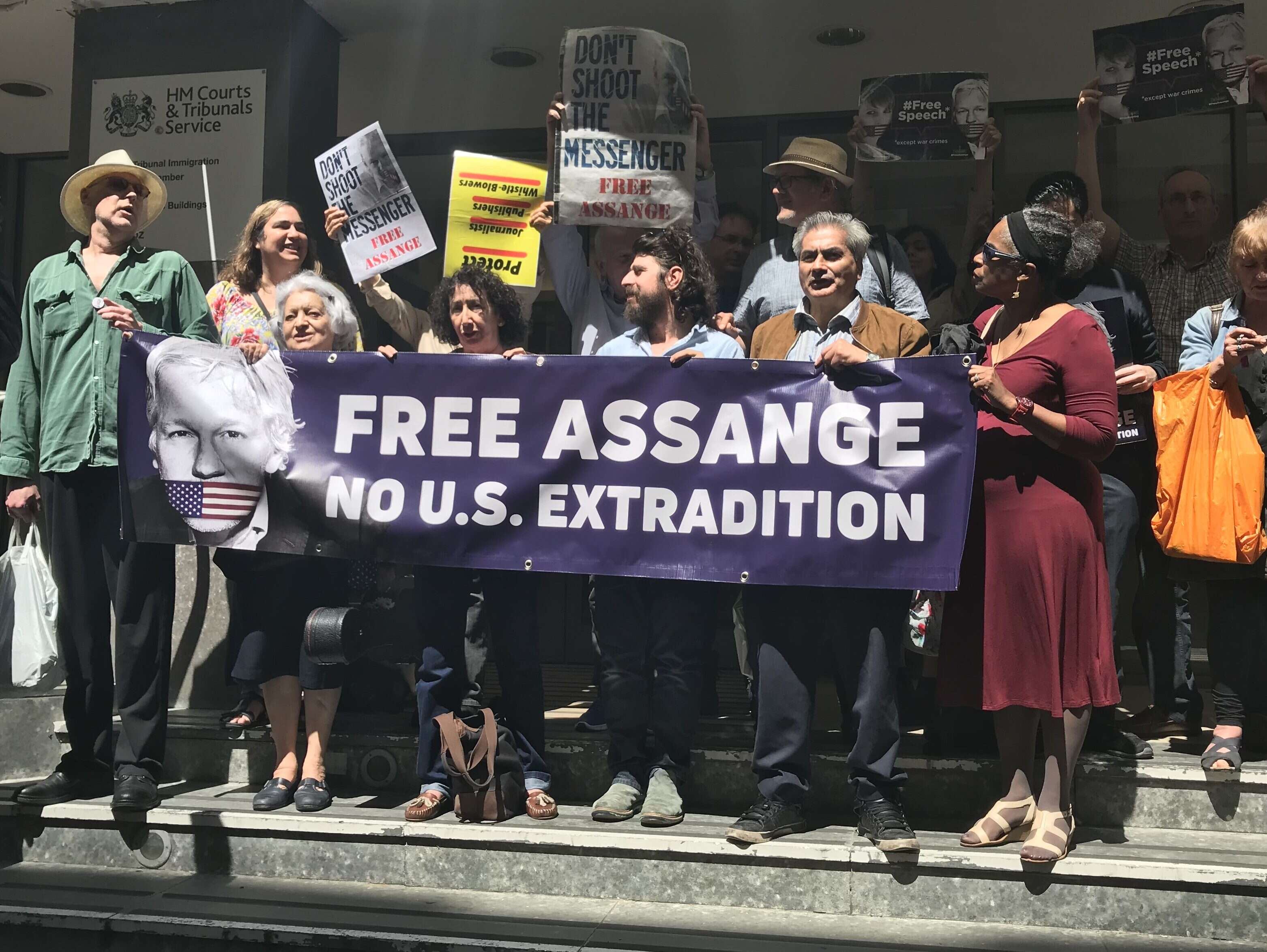
An Italian investigative journalist battling to access files relating to the extradition of Wikileaks founder Julian Assange took her case to the UK’s Upper Tribunal today following a four-year legal fight.
Stefania Maurizi, who works for Italian newspaper La Repubblica, said she wanted to “defend the right of the press to access the documents on the Assange case” in a message on Twitter ahead of the hearing.
The case relates to a Freedom of Information request made by Maurizi in September 2015 to the UK Crown Prosecution Service asking for all of its correspondence with the Swedish Prosecution Authority, which sought to extradite Assange over a rape allegation in 2012.
Assange took refuge in the Ecuadorian Embassy in London to avoid extradition to Sweden that year but was forcibly removed by police in April and was later charged and jailed for skipping bail.
The CPS agreed to reveal some of the information requested by Maurizi after an appeal, but the reporter continues to seek access to the full documents.
Maurizi also asked for all correspondence between the CPS and the US State Department, US Department of Justice, and the Ecuadorian embassy where Assange was granted asylum for almost seven years.
The CPS refused to confirm or deny (known as an NCND response) whether it held such information.
The Information Commissioner upheld the CPS’ decision for both parts of the request and the First-Tier Tribunal in London dismissed Maurizi’s subsequent appeal in December 2017.
She has now taken the case to the Upper Tribunal in London where the case was heard in front of some 25 Assange supporters today, who later protested outside the tribunal (pictured).
Philip Coppel, representing Maurizi, told Judge Mitchell the appeal should be allowed because the “facts, matters and circumstances” around the case had changed by the time the First-Tier Tribunal had made its decision, yet it did not take this into account.
By the time of the FTT decision, Sweden had dropped its investigation into a rape allegation against Assange after finding that “all possibilities to conduct the investigation are exhausted”. It has since reopened.
In the skeleton argument prepared by Maurizi’s lawyers, they also said that “other public interest factors had shifted by then”.
They said the question of whether a tribunal court should consider the facts as they were at the time of the original FOI decision or at the present time was an “important” issue and one that “has been troubling the Upper Tribunal for some time”.
They added in a briefing note that this would have wider implications beyond the Assange case because it would mean journalists can “rely on any factual changes” when the appeal to the FTT.
“This would make the FOIA regime much more user-friendly for journalists and other requesters,” they went on.
“As things presently stand, even though an appeal to the FTT is a full appeal with witness evidence, the FTT routinely consider a ‘historic’ public interest when deciding whether to release information.”
However Robin Hopkins, representing the ICO, told the tribunal today Maurizi’s team had made this argument too late in the process and that it would have made “no difference” to the FTT decision anyway.
He added that the tribunal was bound by precedent from a previous case which found the public interest test should be assessed at the time of the response to the original request.
Coppel also argued the FTT had made a “flawed approach” to determining the “highly impermissible” NCND response by the CPS.
But Hopkins told the tribunal: “There is no error of law at all in this case. It is the simple matter of taking the right test… absolutely bread and butter stuff.”
The final grounds for the appeal related to the public interest test carried out by the FTT.
The FTT’s decision said it was “unable to see” how knowing whether the CPS had received inquiries about extradition or a request for extradition from a country other than Sweden “would be of more than marginal benefit to the public”.
It had also said Assange “no doubt” had a “strong personal interest” in the information.
Coppel argued that just because Assange would have a personal interest, it did not mean there was not also a public interest in the release of the documents.
He told the tribunal there is a “public interest of an individual not being [given] access to information that purports to themselves,” adding this has a “profound” significance in cases such as access to medical records.
Maurizi’s lawyers said in their briefing note that if the appeal is allowed on this basis, it will be “more likely that information will be released about what took place when Assange was subject to the initial extradition request from the Swedish Prosecution Authority”.
Hopkins, for the ICO, said Maurizi’s appeal relied on an “unfair” reading of the FTT decision which was “clear” that it “did consider there to be public interest in the relevant confirmations/denials”.
“It simply assigned a ‘marginal’ weighting to those interests,” Hopkins’ went on.
Rory Dunlop QC, for the CPS, agreed Maurizi’s appeal was based on a “mischaracterisation” of the FTT’s decision, adding that the tribunal had not given much weight to the public interest because “it would only provide a ‘modest’ increase in the public’s understanding of the Assange case”.
A judgment in the case is expected by the end of the week.
If Maurizi wins the appeal, the case will be heard again by the FTT. If she loses, she plans to continue the case to the Court of Appeal and, if needed, the Supreme Court and ultimately the European Court of Human Rights.
Email pged@pressgazette.co.uk to point out mistakes, provide story tips or send in a letter for publication on our "Letters Page" blog
